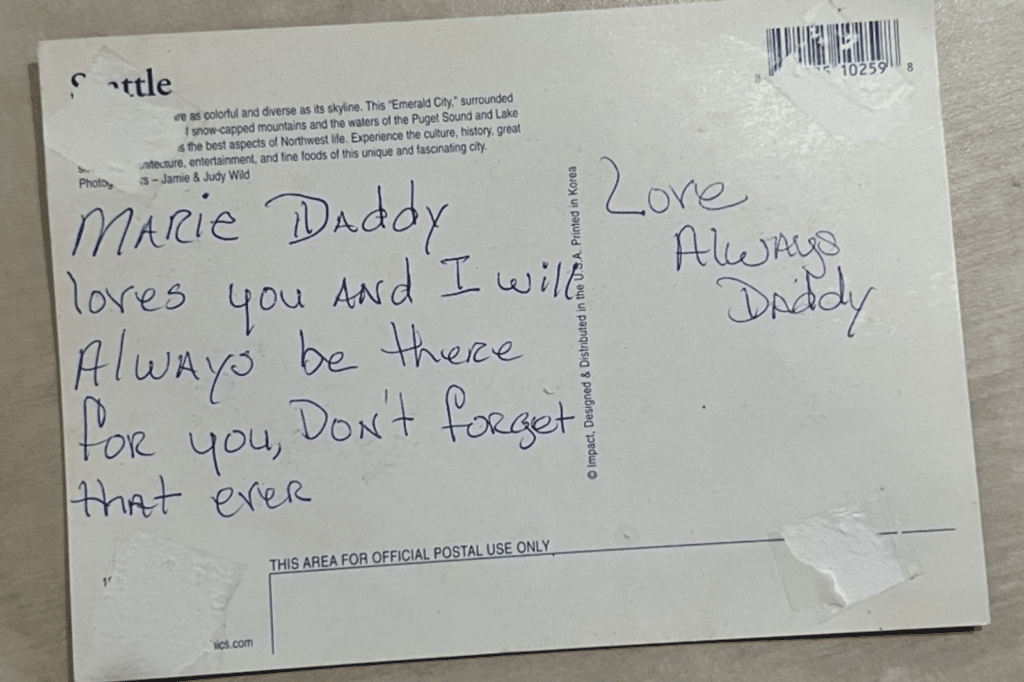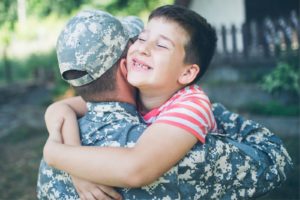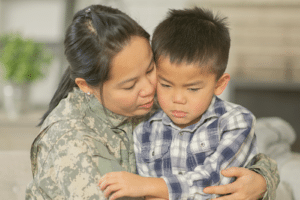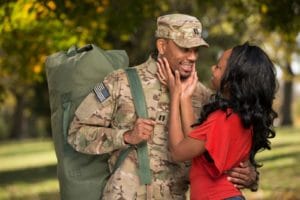For most of my childhood, my dad was in the Army Reserves. Our family wasn’t on the move as much as Active Duty families typically are – but boy did my dad deploy often. We lived in Puerto Rico, where my mom was a factory worker and my dad’s full-time job was managing the graveyard shift at our local Walmart Supercenter. Money was always tight, and deployments were a guaranteed increase in income for the time my dad was away.
As hard as it was on our family, we needed the money, and so he would deploy for at least ten months at a time whenever the opportunity presented itself. I was too young to remember his time spent in Germany and New York, but I vividly remember his deployments to Egypt. During the civil wars, his deployments went on for five years: two months home, ten months away. When the conflict was at its worst, we didn’t see my dad for two years.
staying in touch
Despite the distance, my dad didn’t let us miss him too much. We spoke on the phone any time he wasn’t on a mission or in the field. My sister and I hardly noticed the seven-hour time difference; as tired as he was, my dad would wake up at 2:00AM to talk with us before we went to bed two to three times a week. We would also get post cards or polaroid pictures in the mail several times a year from the places he visited. We would write him letters and send pictures back, too. Our conversations were often about what our new interests were, big events at school, and what we hoped to share with him when he got back. The internet was still quite new (and slow!) at the time, but as webcams became “a thing,” seeing him every once in a while became an added treat.
connection starts before deployment
There was so much more to staying connected as a family than merely talking on the phone. Preparing for deployment was always a big deal. No way was he getting on a plane without his photo album, which included pictures of my mom, my sister, me, and even our dogs and our grandparents. He loaded his first ever laptop with pictures and home videos as a lifeline to us in between calls. When it came time to ship out, it was very important to him that we send him off as a family. We didn’t miss a single send-off – school day or not. We felt almost regal in importance.
communication is key
Communication was key to our family’s stability. We were all in on it – my mom, grandparents, aunts, and uncles alike. Since my mom operated as a working single parent a lot of the time, we spent a lot of time at my grandparents’ house. Once, I recall my grandmother getting a very serious phone call. When she got off the phone, she explained to us, first and foremost, that my dad was okay, but had been in a dangerous situation and would not be able to talk to us for a few weeks. The conflict in Sinai had escalated, and his post came dangerously close to being struck in an aerial attack. They would have to relocate, and communications would be restricted for several weeks. My mom was at work, and she wouldn’t be able to deliver the news to us herself, so all the “grownups” worked together to keep information flowing.
As I grew older, I was looped into the network – tasked with arranging surprises for my mom, such as ordering flowers as Valentine’s Day approached, or wrapping a nice gift he had sent before my mom could get to the mail. My sister and I were my dad’s sidekicks and allies, and it created a special bond between us to rely on each other in this way.
When the tables turned, we would help my mom put together care packages to send to my dad and surprise him and his friends with on special occasions, such as Thanksgiving and Christmas. We loved sending his favorite foods and crafts we worked on.
so much is possible!
Stability for military families can take a bit of added effort, but there are many ways to stay engaged and connected no matter how many miles are between the hero and their dependents:
- Involve your kids in preparing for deployment – talk about what it may be like and let them help pack luggage. Talk about the ways the military member will remember them by.
- Schedule time for connection – It was a comfort to us to count on a phone call at 7pm several times a week to connect with our dad; my mom made sure we were home and that the phone was available to take the call.
- Share from across the world – sending post cards or letters, packages, pictures, and making special occasions a priority whenever possible are great ways to stay connected.
the kids will be okay
My dad was gone a lot, and he missed a lot of birthdays, graduations, and “big firsts.” In spite of this, we were extraordinarily close. His returns from deployment were momentous occasions – we loaded the car with banners, the dogs, twinkies, and moon pies (his favorites), and anxiously waited for the uniformed posse to step off the flight line. That first hug off the plane was worth the wait. Every. Single. Time.










